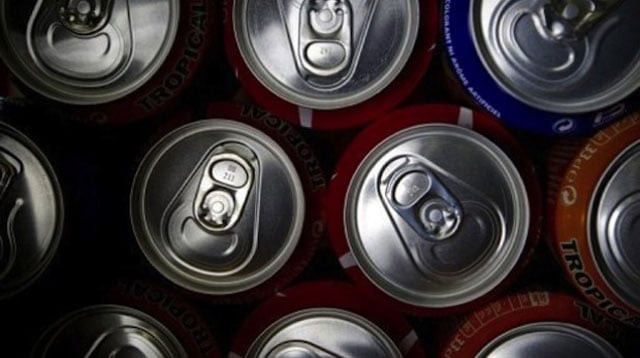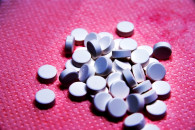Punjab mulls ban on soft drinks in schools
Proposal will be presented before an upcoming board meeting of food watchdog.

Proposal will be presented before an upcoming board meeting of food watchdog. PHOTO: AFP
The Punjab Food Authority (PFA) has recommended banning soft drinks at schools and replacing them with healthier alternatives such as flavoured milks and fresh juices, The Express Tribune has learnt.
The watchdog also intends to give the canteens a set of guidelines to provide the children with healthier options instead of junk food. The proposal will be presented before the upcoming board meeting of the authority for approval.
PFA Director General Noorul Amin Mengal said junk food and soft drinks were having adverse effects on school-going children. “The youth are Pakistan’s future and need to be taken care of,” he said, backing the proposal to ban harmful food products in schools.
He also suggested that canteens should serve flavoured milks, juices, fruits and boiled eggs to children, as proper diet not only affected physical growth but also the mental growth of a child. “The ban on soft drinks will be imposed hopefully after the approval of the PFA board members,” he added.
Junk food
“Soft drinks are extremely harmful for children of growing age,” says food technologist Dr Zafar Mehmood, who is also an associate professor at the Forman Christian College University. “Soft drinks combined with junk food available at most school canteens create a sort of silent hunger, where the body remains without important nutrients despite the fulfilling feeling.”
He added the intake of soft drinks for growing children reduced bone density, created stomach disorders, made them hyper-active and caused attention span deficit.
Dr Zafar said carbonated drinks also affected the mental growth of children. “If taken after a proper meal, these drinks do not let important minerals to dissolve in the body,” he said. “Replacing them with flavoured milk is a much wiser option.”
He added malnutrition was one of the major causes of stunted growth in Pakistani children and parents needed to keep a watch on the diet plan for their kids. “Rather than worrying about the growth of children in later years, parents should devise a healthier diet plan at an early stage,” he advised.
Unending debate
The debate of banning soft drinks in schools is not limited to Pakistan or South Asia. In December 2010, former US president Barack Obama had signed the Healthy Hunger Free Kids Act of 2010 (effective in 2014) that mandates schools receiving federal funding from the US government to offer healthy snacks and beverages to students.
The act banned the sale of soft drinks to students and required schools to provide healthier options such as water, unflavoured low-fat milk, 100% fruit and vegetable drinks or sugar-free carbonated beverages. The portion sizes available to students were to be based on age: eight ounces for elementary schools, 12 ounces for middle and high schools. Proponents of the act predicted the new mandate would make it easier for students to make healthy beverage choices at school.
In May 2006, the British education secretary, Alan Johnson, announced new minimum nutrition standards for school food. Among a wide range of measures, school lunches were to be free from carbonated drinks. Schools also ended the sale of junk food, including carbonated drinks, in vending machines and tuck shops.
Awareness campaign
The Punjab food watchdog is also planning an awareness campaign to promote healthy lunch boxes for schoolchildren, keeping in view that Pakistan stands among the countries with the worst stunted growth problem.
The PFA has taken this up as a challenge with its recently approved regulations setting high standards for fortification of oil and wheat keeping in view the disorders.
Certain levels of vitamin A and D have been specified for oil while wheat has to have the required levels of folic acid, iron, zinc and vitamin B-12. The fortification, according to the PFA, will add nutrition value and address the growth issues faced by the new generation.
Published in The Express Tribune, May 1st, 2017.



















COMMENTS
Comments are moderated and generally will be posted if they are on-topic and not abusive.
For more information, please see our Comments FAQ